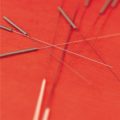
Allergies have swept the country in 2015. In early April, many feared the northeast part of the U.S. would face one of its worst allergy season on record due to an unusually prolonged winter. Many in central and mid-western states knew, as always, they'd be furiously attacked by pollen, ragweed and other allergens.
So how do you manage them? Take a well-balanced approach that includes upgrading your in-home devices to protect your residence and natural medicines to protect your body. In the final part of our three-part series, we look at three more natural remedies for you to try out:
1. Probiotics
Recent research suggests the lack of certain good bacteria in our body increases the chance we'll become allergic to pollen, ragweed or mold. When we become allergic to something, our body overreacts too strongly to stimuli. Probiotics help increase the amount of good bacteria we have, which equips our bodies to better handle allergens.
2. Hot peppers
You may not be a fan of spicy food, but maybe you should start to incorporate it into your diet, especially if you suffer from allergies. A 2009 clinical study proved these to be natural decongestants because of a substance they contain called capsaicin. Capsaicin not only decreases tissue inflammation, which is brought on by allergies, but also helps clear mucus.
3. Butterbur
People have used butterbur for centuries, yet the buzz around this natural antihistamine to treat allergies just caught on with the general public. Researchers discovered that one tablet of butterbur extract taken four times a day had the similar effects of a popular antihistamine drug to control hay fever. At the American Academy of Allergy, Asthma and Immunology, another group of researchers supported butterbur's allergy-fighting ability.
For more allergy solutions, visit Allergy Be Gone's store for a wide range of allergy control products.









